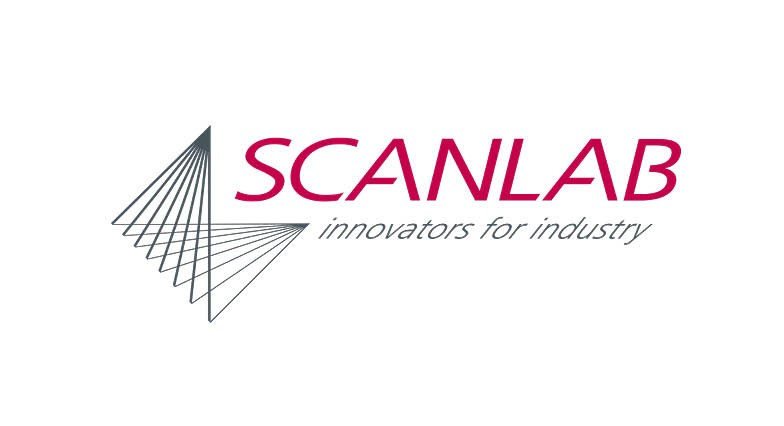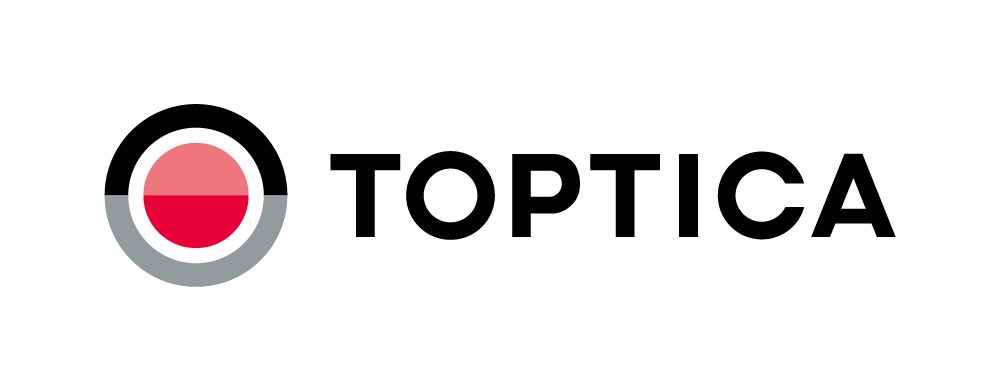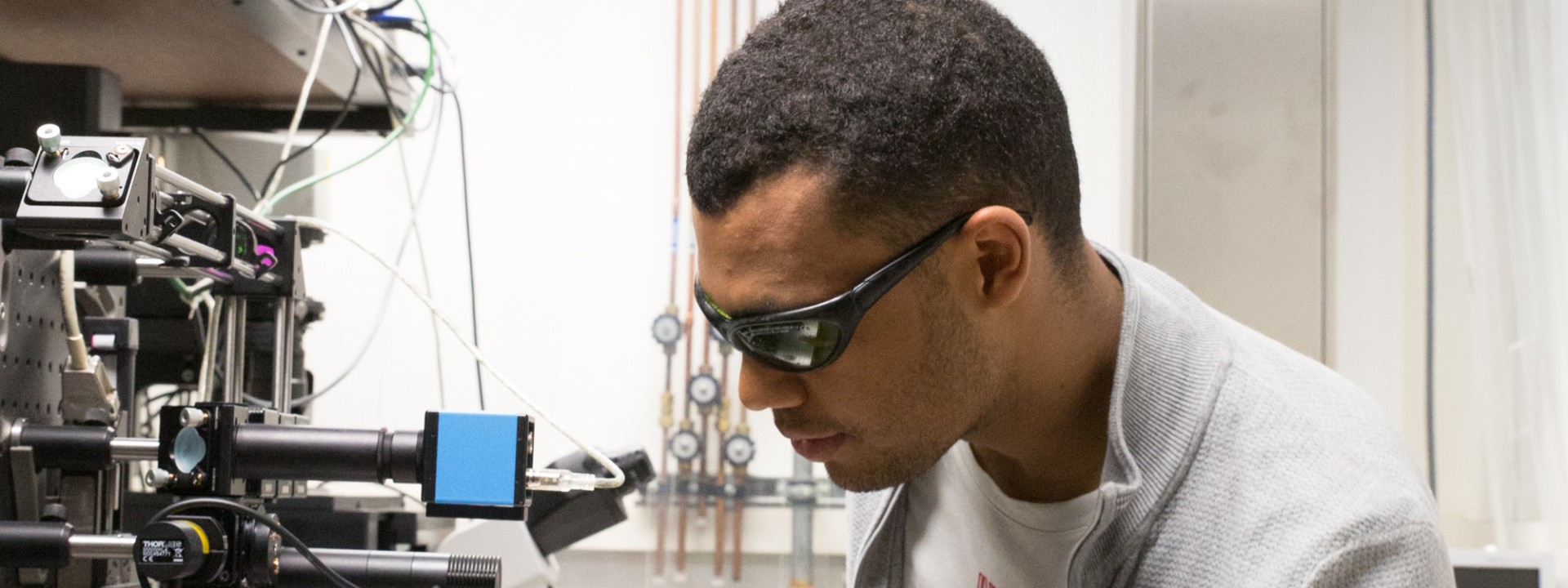Photonics (M.Sc.)
The Photonics master's program prepares you for today's and tomorrows's cutting-edge industry and research.
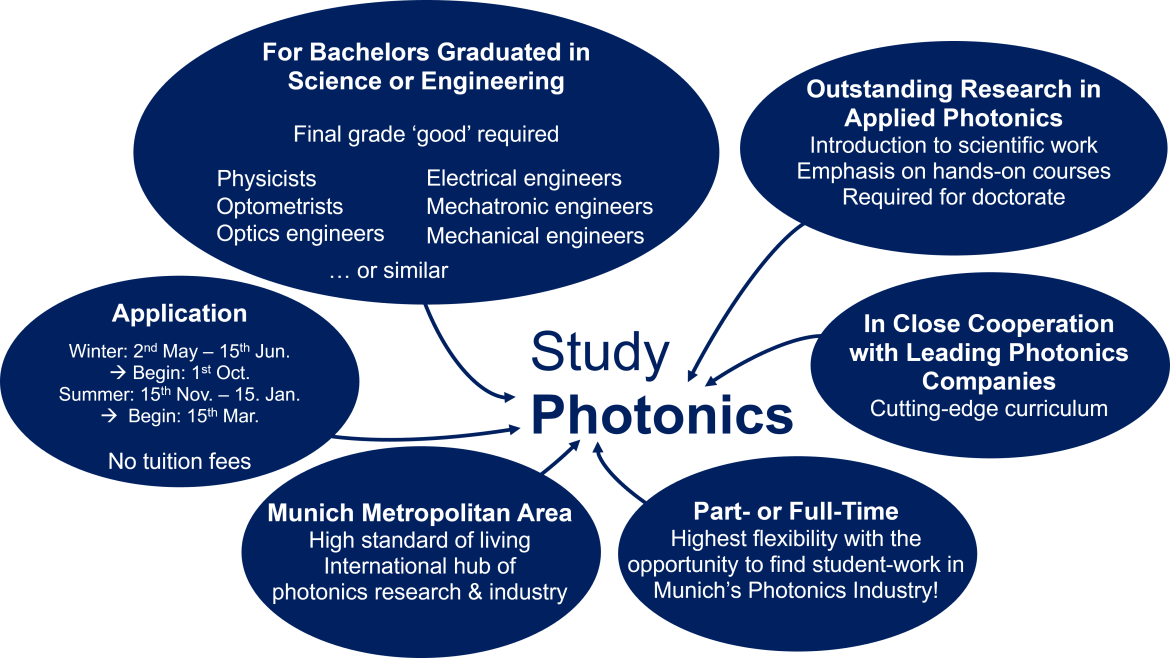
The innovative power of photonics is changing our daily lives. Brilliant laser sources, quantum computers and communication, high-performance fiber optic networks, light-based therapy and diagnostics in medicine, and energy-efficient semiconductor optics are the hallmarks of current technological progress, which will determine our lives in the future.
The master's degree program in photonics provides you with well-founded and comprehensive knowledge, and combines different areas, such as biological imaging, industrial sensing, illumination and optics design, medical technology, material processing, and earth or aerospace communication technology.
You hold a bachelor's degree in science or engineering, such as
- Physics
- Mechatronics
- Electrical engineering
- Ophthalmic optics | Optometry
- or similar
The master's degree in photonics gives you opportunities in a high-tech sector with large innovation and development potential as well as excellent career prospects.
- Degree: Master of Science (M.Sc.)
- Language of instruction: English
- Exams, Master’s and Project theses can be written in German or English
- Accreditation: ASIIN accredited
- Duration: Full time (3 semesters) or part time (4 to 6 semesters)
- Teaching and examination period: summer semester app. March 15th to July 31st and winter semester October 1st to February 14th.
- Application period: Mai 2nd to June 15th for the following winter semester; November 15th to January 15th for the following summer semester.
- Beginning: summer and winter semester possible (Application)
- Tuition fees: none
- Semester contribution / living costs: check here
- Bachelor's degree in science or engineering at a properly accredited institution with a final grade better than the equivalent of a German grade 'good'.
- The Bachelor's degree must cover at least 180 ECTS credits and at least six theoretical semesters and must include a practical semester or an industrial internship of at least 18 weeks.
- If you have completed a Bachelor's degree with less than 210 ECTS credits (but at least 180 ECTS credits) or if you have not yet completed an 18-week industrial internship, you can make up for this during the Master's degree program. In this case, the Master's program is extended to four semesters.
- If the equivalent to a German degree with 'good' is not evident from the documents submitted, or if you do not meet the final grade 'good', you have to proof your qualification in an oral entrance examination (held in person or online).
- English language skills at level B2 or an English-included German university entrance certification (Abitur).
- German language skills are recommended. During the Master's program, you're encouraged to attend German classes. Hochschule München offers courses in German that can be attended voluntarily and free of charge.
- Application deadline:
- 2nd May to 15th June for the following winter semester;
- 15th November to 15th January for the following summer semester.
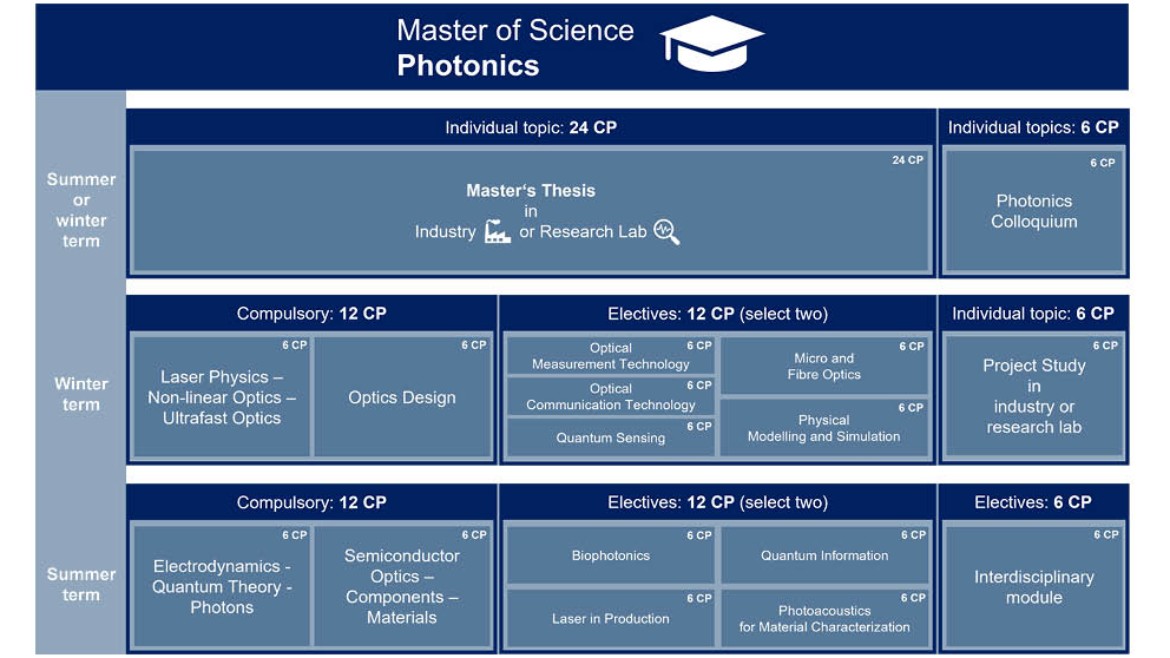
An outstanding curriculum, which is regularly updated in consultation with the Industrial Advisory Board, helps you prospering for career (see picture)
The course content ranges from the fundamentals in physics as of electrodynamics, quantum theory, semiconductor and laser physics to application-related content such as laser materials processing and optical communication technology.
In addition, you have the opportunity to choose further electives from the wide range of courses offered by the department and the Hochschule München | University of Applied Sciences. The theoretical knowledge is put into practice and deepend through a high proportion of practical laboratory assignments.
In the Project Study and Master's Thesis, research and engineering skills are trained and creativity is encouraged. The Master's Thesis can be carried out either in the university's research laboratories or in industry.
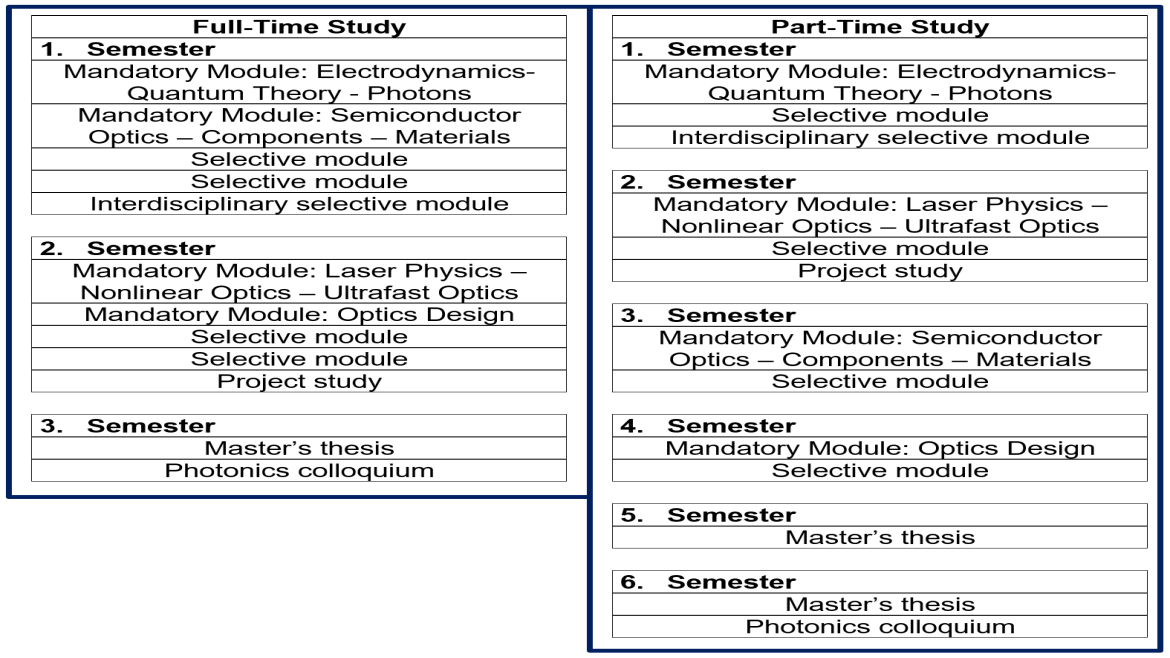
Example for educational organization (see picture):
Examples of compulsory elective modules: Quantum Information; Photoacoustics; Physical Modeling and Simulation; Micro- and Fiber Optics
Examples of interdisciplinary elective modules: Project Management, Quality Management, Technology and Innovation Management
The program has modern equipped research laboratories in which numerous research projects are carried out in collaboration with national and international industrial and academic partners. Cutting-edge research in the high-tech photonics field is performed by combining the strength of students, graduates, PhD candidates and professors in the frame of the Photonics Research Cluster .
The research focuses on multiphoton microscopy for biological and medical applications, ultrashort-pulse laser material processing, photoacoustics, and optical fiber sensor technology.
The outcome are excellent cooperative doctorates, projects of highest ingenuity and many contributions to peer reviewed journals and conferences.
You are interested in our research? Contact our lab supervisors.
As one of the most remarkable characteristics of the Photonics course of study is its close relationship with the photonics industry in the Munich metropolitan area and beyond.
The program has gained a very high reputation in its industrial and academic environment. After completing the program, you will be prepared for a career as a high-tech expert in industry. You will have very good employment prospects and possess important intercultural skills and international experience. You may also choose to pursue doctoral studies.
Part time or even full time studies can be combined with student jobs to get an early entrance to real applications, underlined by highest flexibility in compiling your individual curriculum.
Alumni of the Photonics master's program found jobs in:
- Life Science and Medical Technologies
- (Quantum-)Communications and (Quantum-)Information Technology
- Regenerative Energy Industry
- Earth Observation and Aerospace Industry
- Optical Instrumentation and Sensing
- Production and Laser Material Processing
- Science and Research
The Industrial Advisory Board , consisting of internationally operating companies, supports the Photonics study program in teaching and research and is also a great employer for our students in the greater Munich area after graduation.
Industrial Advisory Board
The Master in Photonics is supported by an Industrial Advisory Board.






